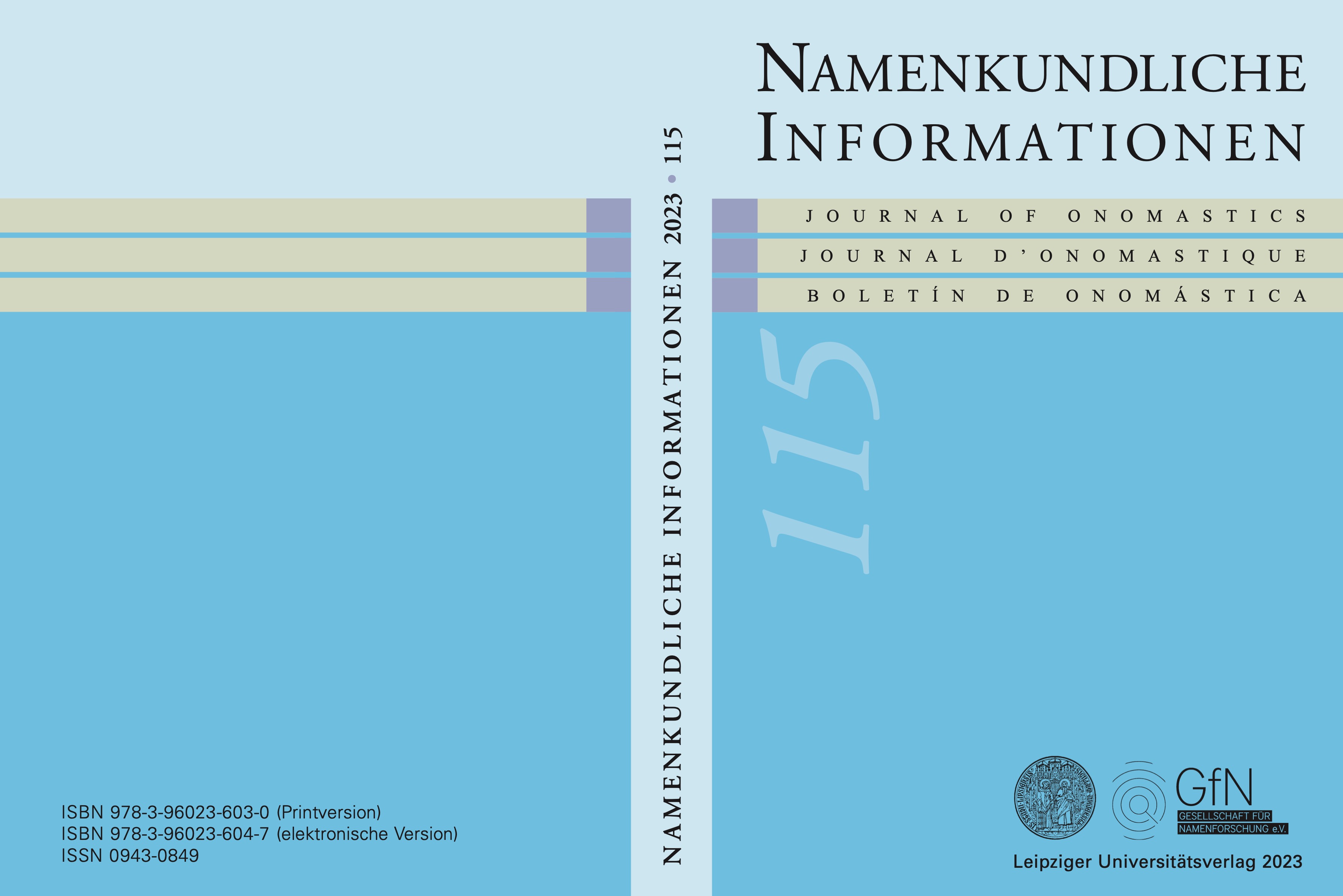Onomastic settlement history of the province of Salzburg
DOI:
https://doi.org/10.58938/ni735Abstract
This paper provides an overview of the settlement history of the state of Salzburg (Austria). The region of Salzburg has been shaped by various peoples over millennia, evidenced by the presence of Indo-European names associated with ancient European hydronymy, as well as Celtic, Romance, Slavic, and Bavarian names. The specific distribution of these names across different districts of Salzburg, the era of Germanization of foreign names, and notably the characteristic Bavarian linguistic patterns in various regions, afford concrete insights into the diverse settlement history of Salzburg. This history is influenced not only by the topographical context as an Alpin region but also by its role as a significant transportation hub for north-south routes across the main Alpine ridge. The ability to conduct a comprehensive historical analysis of settlement based on toponyms is primarily attributed to the HELSON project (Historical Etymological Lexicon of Salzburg Place Names), which now covers a substantial portion of the state. After Hörburger’s Salzburg Place Names Book, HELSON represents the first systematic endeavour, now organized alphabetically, to document all settlement names as well as numerous other names within the state in a comprehensive manner. Five out of the six Salzburg districts have already been investigated as part of the HELSON project, with only the district of Pongau still to undergo systematic onomastic analysis. This historical overview of settlement facilitates not only a general understanding of the distribution of various layers of names within the state but also predictions regarding the name materials to be expected in the Pongau region.
Downloads
Published
Issue
Section
License
Copyright (c) 2024 Julian Blaßnigg

This work is licensed under a Creative Commons Attribution 4.0 International License.
Es findet keine exklusive Übertragung von Verwertungsrechten (Copyright Transfer) an die Zeitschrift statt. Die Autor/innen stimmen bei Manuskripteinreichung der Veröffentlichung unter der Lizenz Creative Commons Attribution 4.0 International zu.


